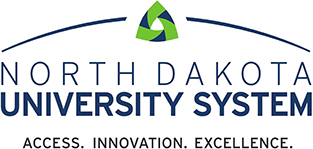
02 Jun Board talks year-end housekeeping
Following a daylong strategic retreat, the State Board of Higher Education focused on recapping the last several months at its regular May meeting.
Chancellor Mark Hagerott walked the Board through a legislative recap, focusing on HB1003 and SB2015, among other impactful bills. He said it was a very successful session, with the legislature funding the university system above its requested budget. He thanked the Board for the members’ involvement in monitoring the legislature and providing recommendations throughout the session. Member Jeffry Volk said it was important to be mindful of the legislative process, and to follow back around on topics such as dual credit and the funding formula.
Hagerott gave an update on regional tech hubs, noting that half a billion dollars had been appropriated at the federal level and such tech hubs could be transformational moving forward. He added that the kickoff event would occur on June 5-6.
Member Danita Bye updated the Board on its self-assessment priorities. She noted that there were two areas the committee was looking to address this year, criteria for self-assessment and steps to take to reach an end report. She added that there would be action items related to communications as that had been rated low relative to other criteria. Bye said that part of the self-assessment would also include review of the strategic plan.
The Board spoke at length on the topics of new board member orientation and a timeline for the chancellor’s evaluation. The Board spent significant time speaking on the value of the orientation and made suggestions for how it could improve for new committee members in the future so they could be aware of their committee’s history. Discussion then commenced on the process of the chancellor’s evaluation and who was ultimately included in it. The Board then approved the timeline for the evaluation process.
Board business, policy updates
Member Dr. John Warford provided an update from the Academic and Student Affairs committee, noting that the group spoke about digital literacy. He complimented several institutions for bringing numerous new programs forward that were related to public health, leadership and cybersecurity.
Chair Dr. Casey Ryan and Bye respectively provided updates on the Research and Governance committee, which included news of what was happening with research in the state and what would be happening post-legislative session. He added that research was going on systemwide. Ryan added that the committee had discussed the CHIPs Act, which would significantly fund research throughout the nation, including a five-state consortium including North Dakota, Montana, South Dakota, Wyoming, and Idaho. Bye noted that robust and productive conversations had revolved around policies, self-assessment priorities, and new member orientation.
Vice Chair Tim Mihalick provided an update from the Budget and Finance committee, which included a request from North Dakota State University to proceed with demolishing the Agricultural and Biosystems Engineering building; for University of North Dakota to change tuition rates for its Master’s in Public Health and the Medical Lab Science program for out-of-state and international students; for transfer of a total of funding for capital building fund appropriations at Lake Region State College and Dakota College at Bottineau. All were approved.
Member Nick Hacker provided updates from both the Audit and Efficiency and Opportunity Ad Hoc committees, which included updates on the 2024 audit plan review and audit committee charter review. He said other positive news was that audit had been fully funded by the legislature. Hacker added that there were about fifty recommendations that had been received by the Efficiency and Opportunity Ad Hoc committee, with roughly ten still needing to reach a conclusion.
The Board also held first readings of Policies 100.6 (Authority & Responsibility of the State Board of Higher Education) and 311 (Public Records), as well as second readings of Policies 461 (Digital Literacy), 330 (Policy Introduction, Amendment, Passage), 302.3 (Budget and Finance committee), and 302.7 (Research and Governance committee). All were approved with the exception of 100.6, which was sent back to the governance subcommittee for additional discussion.
Student member of the Board Sadie Hanson said there had been no recent meeting of the North Dakota Student Association, so had no report.
Faculty Advisor to the Board Lisa Montplaisir, Ph.D., provided an update on behalf of the Council of College Faculty, noting that the members of the committee breathed a sigh of relief at the end of session and the school year, and that she would be providing an update on representation at the campuses, and a resolution on post-tenure review.
Staff Advisor to the Board Michael Linnell provided an update on behalf of the State Staff Senate, noting that during the last meeting they spoke about legislative issues that impacted staff, as well as the funding bill. He added that the annual retreat would take place in June.
In other business, the Board nominated Mihalick as the incoming chair, and Warford as the incoming vice chair. Both were approved and will be effective July 1. The Board also approved a Joint Powers Agreement between DCB and the City of Minot to provide additional financing for the renovation of the former Trinity Health Building, currently owned by the Minot State University Development Foundation into a Career and Technical Facility. NDSA President Christopher Scott spoke during the public comment portion of the meeting to read a resolution passed by student government against the ban of TikTok on state-owned devices.
The next meeting will be held June 27.


